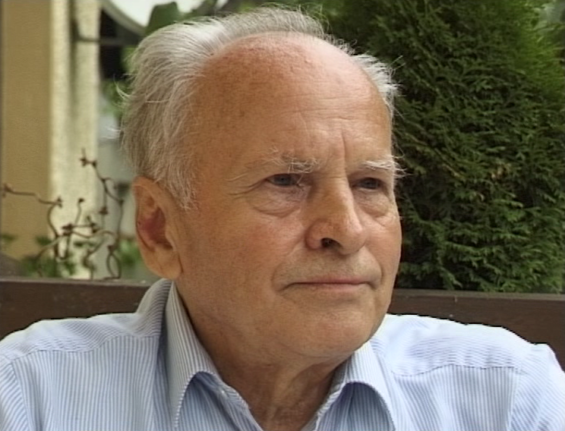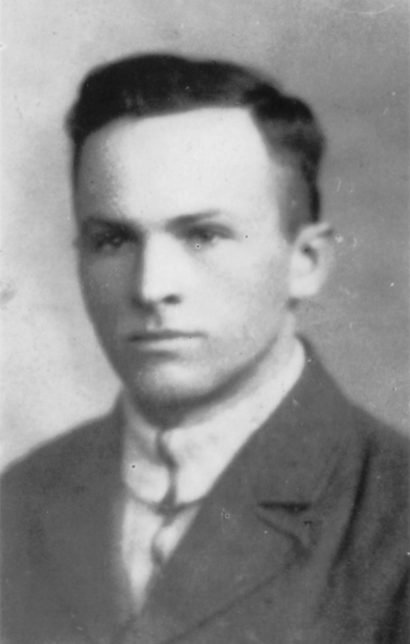Franciszek Gawryluk
born October 10, 1922
![]()
Franciszek Gawryluk, 1947 (private collection)
Dangerous Work in the Sick Bay
Franciszek Gawryluk was born in Wólka Polinowska in east
Poland. His village was located in an area that was part of
Russia until the First World War, and today is located near the
border with Belarus. Franciszek Gawryluk speaks Polish and
Russian. The German occupation authorities sent Franciszek Gawryluk to Germany for forced labor in March 1940. He was assigned to a farming family in Weissenborn, Saxony. During this time he exchanged letters with Poles from his home region who were forced laborers in neighboring towns in Saxony.
An acquaintance, Bronisław Marczuk, was arrested for writing a letter of complaint to a German newspaper regarding the low wages for Polish forced laborers. A letter from Franciszek Gawryluk was found in Bronisław Marczuk’s possession. In October 1940, Franciszek Gawryluk was arrested by the Gestapo. After six months investigative custody in the Dresden police jail, a protective custody order was issued against the eighteenyear-old Gawryluk for “inflammatory propaganda.” He arrived at the Flossenbürg concentration camp after spending time in jails in Zwickau, Plauen, Hof and Nuremberg. Bronisław Marczuk, who was also interned at Flossenbürg, died in late February 1942.
Franciszek Gawryluk was first put to work on the road construction commando. Later he was made to transport heavy granite blocks by trolley in the quarry, where he was constantly exposed to the elements and to the violence of the Kapos. In fall 1941, the head Kapo in the quarry had Franciszek Gawryluk transferred to a roofed building, where he was trained as a stonemason. After two years in this commando, the SS \ transferred Franciszek Gawryluk to the sick bay so that he could act as an interpreter for the Polish and Russian prisoners. Later he was assigned the task of carrying out blood and urine tests. He also was made to examine sputum for tuberculosis bacteria. Due to poor sanitation and the lack of disinfection, this was dangerous work. Because of the risk of contagion, the sick bay prisoners were not sent on the death march. Franciszek Gawryluk was still at the camp at its liberation on April 23, 1945.
Franciszek Gawryluk returned to Poland and first worked as a laboratory assistant in Warsaw. He completed his high school diploma, then went to medical school and became a physician.

Franciszek Gawryluk, ca. 2005 (Flossenbürg Concentration Camp Memorial)
